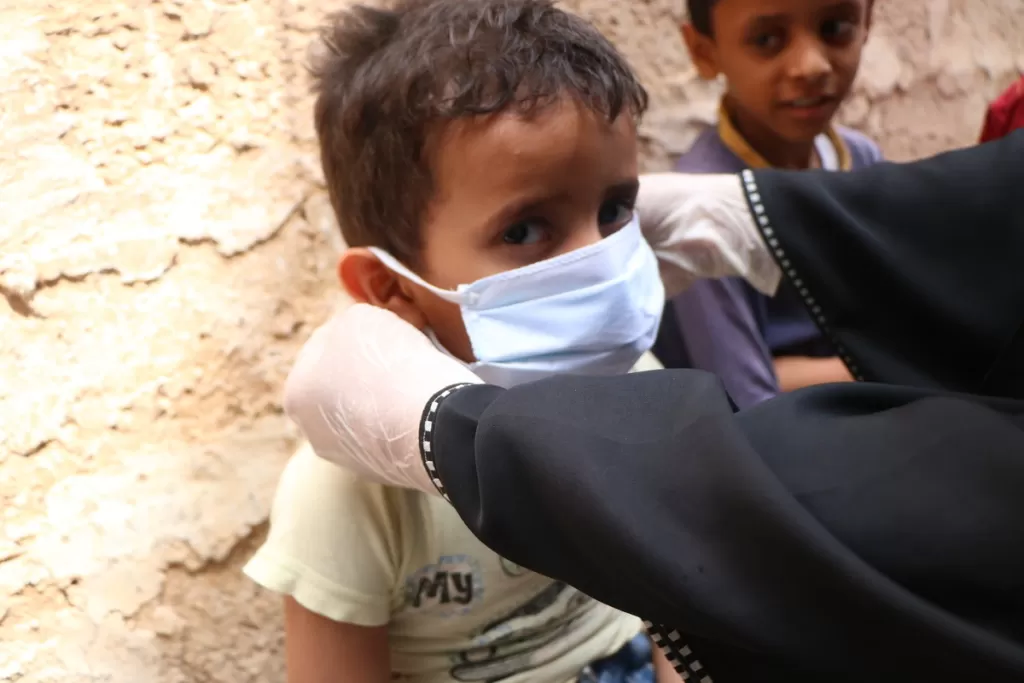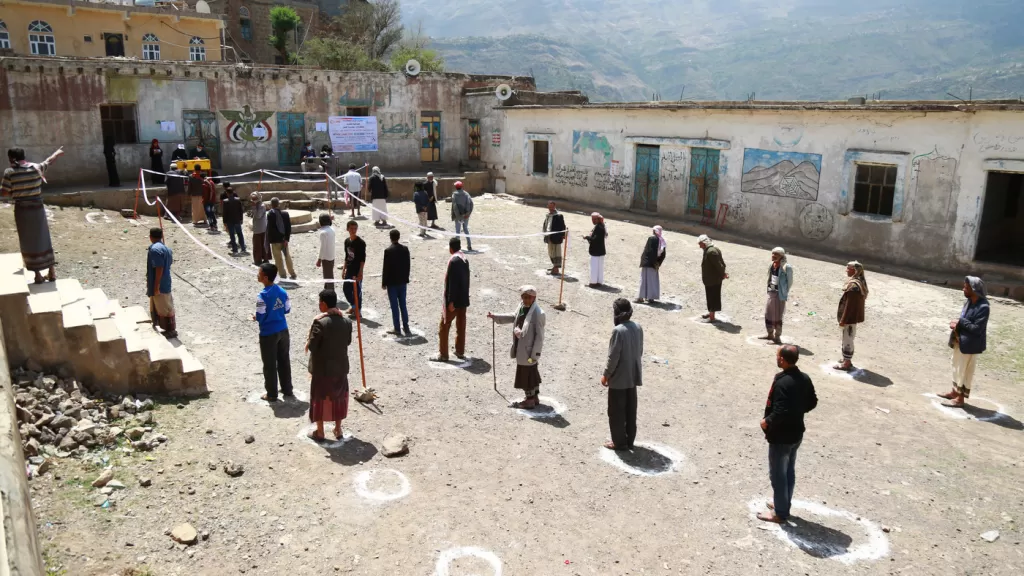In Yemen, coronavirus is a serious danger for children too. Two million under-fives need treatment for malnutrition. In 2018 it was estimated that 85,000 children had died of malnutrition in the previous three years. The pandemic is worsening food shortages in Yemen, threatening to push more children into malnutrition.
And for those who do fall ill, the situation is dire. After five years of civil war, 50% of health clinics and hospitals have been destroyed. Of those that do remain, only half have enough staff to operate properly. And after seeing the way hospitals were targeted during the war, many people are too afraid to go to hospital at all.
On top of this, the pandemic has led to a reduction in funding for aid programmes. The UN has been forced to close many of its programmes in Yemen, including nutrition programmes and programmes to supply hygiene and sanitation supplies to families.
The DEC’s Coronavirus Appeal has been set up to raise urgent funds to help people in fleeing war and living in fragile states. DEC charities are already on the ground in Yemen helping those most in need, but they desperately need more funding to scale up their operations.
The people of Yemen have endured five years of civil war, a situation which is still ongoing. Millions have lost their livelihoods, their homes, and their loved ones. The hardships they have already faced only puts them more at risk from this new invisible danger.


